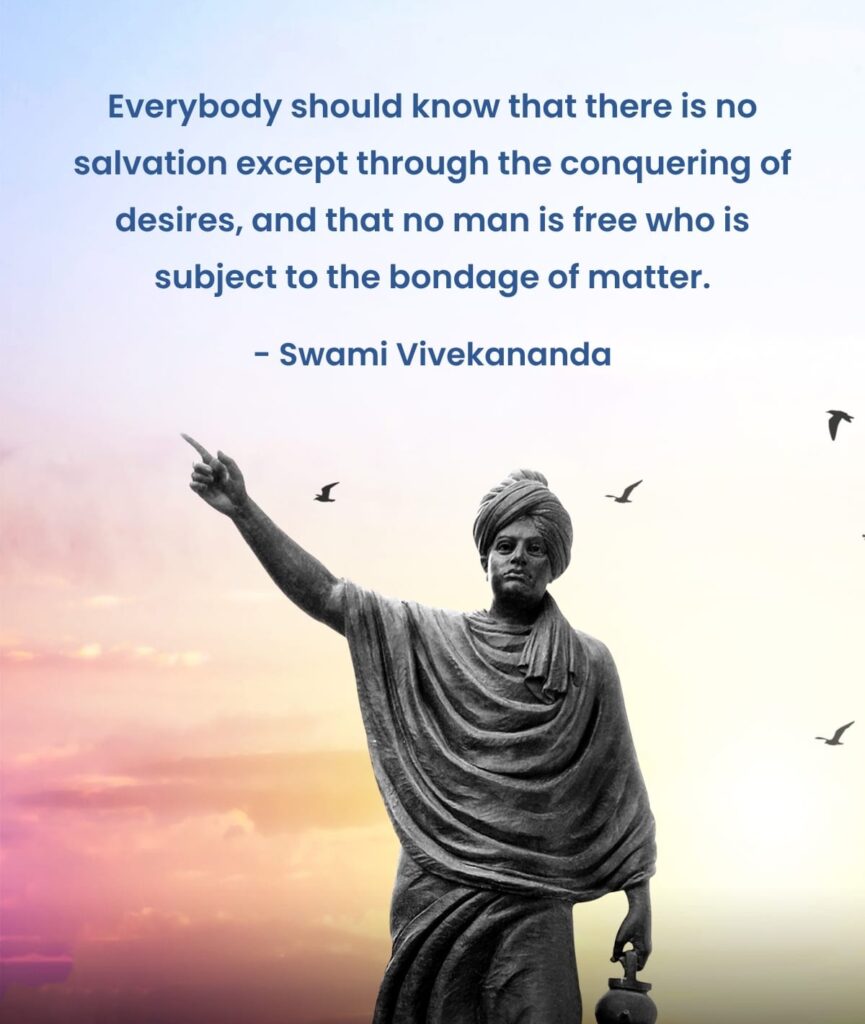विहाय कामान्य: सर्वान्पुमांश्चरति नि:स्पृह: |
निर्ममो निरहङ्कार: स शान्तिमधिगच्छति || 71||
vihāya kāmān yaḥ sarvān pumānśh charati niḥspṛihaḥ
nirmamo nirahankāraḥ sa śhāntim adhigachchhati
vihāya—giving up; kāmān—material desires; yaḥ—who; sarvān—all; pumān—a person; charati—lives; niḥspṛihaḥ—free from hankering; nirmamaḥ—without a sense of proprietorship; nirahankāraḥ—without egoism; saḥ—that person; śhāntim—perfect peace; adhigachchhati—attains
Translation:
That man who lives completely free from desires, without longing, devoid of the sense of “I” and “mine,” attains peace.
Commentary:
Arjuna asked the Lord four questions about the Sthitaprajna – (1) What are his qualities? (2) What does he speak? (3) How does he move? (4) How does he act?
From the 55th verse till the end of the discourse, all the qualities mentioned constitute the general character of the sage of steady wisdom.
In this verse again the Lord speaks of the man who attains peace. Four important conditions are to be fulfilled before the man could experience the supreme peace of the Self.
- All desires should be given up completely.
- There should not be any taste or relish for them.
- The feeling of me and mine should be given up.
- The ego-centre attitude should be dropped.
The Lord repeats at the end what He was affirmed at the beginning of his estimate of the sthitaprajna. The word all (sarvam) is repeated emphatically many times, to show that all desires should be given up without any exception. Even if there is a single left in the mind, it grows and grows and binds man in samsara.
It is not enough to give up desires and sense pleasures externally. The seeker should not think of them even, nor entertain any longing for them.
The ego-centric attitude which is the root cause of bondage should be eliminated by knowledge of the real Self. It is the ego that attaches itself to the body and forges all the bonds of friends, relations, enemies, and so on. It is because of the ego-centric attitude that Arjuna was overpowered by delusion and sorrow at the thought of killing his people svajanam in battle. When the man does not identify himself with the body, all other attachments arising from the body are removed completely. When the body is not his, how can he have any attachment for things outside the body? Knowledge of the real Self clears away all doubts and perplexities, and then peace is attained.
We note once again that the general term anybody (yah) is used here, implying that wisdom is not the monopoly of persons belonging to any particular caste or creed. Whoever follows the Lord and the way shown by him will attain peace.

Question: Who can attain peace?
Answer: The man who has given up all desires, who has no longing for enjoyments, who has abandoned the idea of mine, and who has transcended the ego, attains peace.
